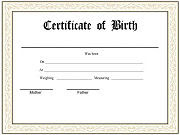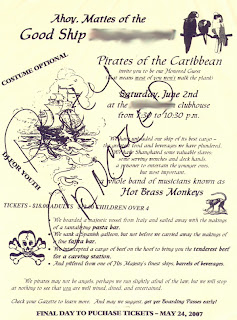 Religion indeed has produced a [Phillis Wheatley] but it could not produce a poet.” – Thomas Jefferson“The master’s tools will not dismantle the master’s house.” – Audre Lord
Religion indeed has produced a [Phillis Wheatley] but it could not produce a poet.” – Thomas Jefferson“The master’s tools will not dismantle the master’s house.” – Audre LordAll right, (rap) haters, here’s what I like about Kanye West:
I appreciated his
sniper opprobrium of George W. Bush during a Hurricane Katrina fundraiser. In this air-brushed media environment, I like it when famous people make their position serve as an opportunity for rawness. In addition, however, I think West is a good poet who deserves recognition as such.
I do not have his latest album,
Graduation, but I do have
College Dropout and
Late Registration. West bridles phrases—like all good writers, he understands that words exist to do his bidding.
I’ve had a soft spot for rap since high school, especially the social protest kind. One day when I was a sophomore, I entered a classroom and saw the lyrics of Public Enemy’s “Fight the Power” written on the chalkboard. It seemed there was energy embedded in this music with spoken word, and it was so potent that one of my classmates felt the need to copy it out and share it with the rest of the school.
West’s song “Crack Music” (lyrics below) addresses sociopolitical issues including drugs, slavery reparations, and the White commodification of hip hop culture. This song is not a call to action like “Fight the Power.” Still, it pokes at old and not-so-old wounds of racial oppression and argues that rap’s popularity ironically helps to recoup the economic losses that Black people have endured. Not unlike Wilfred Owen’s WWI trench poetry or Dickens’s nineteenth-century novels on the Condition of England, it’s a piece of art with overtly political content.
The difference between rap and poetry is not clear to me. What is poetry but a way of organizing words in order to communicate feelings and ideas that otherwise could not be expressed? I’ve seen transcripts of blues songs from Bessie Smith in some 20th-century poetry anthologies. Should the work of someone like West be next?
West has been criticized for his prodigious narcissism; I remember the outcry about his being depicted as Christ on the cover of
Rolling Stone.
Unquestionably, he’s an egomaniac. But he’s a rock star. Don’t we look to them to be outrageous? Don’t we expect them to go to extremes? Artists’ egotism warrants a little dispensation, I think. What they do is pretty amazing.
West is intelligent, confident, and unafraid to express his opinion. Obviously, this “Uppity Negro” must be stopped.
*
Crack Music
That's that crack music nigga
That real black music nigga
That's that crack music nigga
That real black music nigga
How we stop the black panthers?
Ronald Reagan cooked up an answer
You hear that?
What Gil Scott was hearin
When our heroes and heroines got hooked on heroin.
Crack raised the murder rate in DC and Maryland
We invested in that it's like we got Merril-Lynch
And we been hangin from the same tree ever since
Sometimes I feel the music is the only medicine
So we cook it, cut it, measure it, bag it, sell it
The fiends cop it
Nowadays they can’t tell if that's that good shit
We ain't sure man
Put the CD on your tongue yeah, that’s pure man.
From the place where the fathers gone,
The mothers is hardly home
And the...
Gonna lock us up in a...home
How the Mexicans say we just tryin to party homes
They wanna pack us all in a box like styrofoam
Who gave Saddam anthrax?
George Bush got the answers
Back in the hood it's a different type of chemical,
Am and Hammer baking soda
Raised they own quota
Writin when our soldiers ran for the stove cuz--
Cuz dreams of being 'Hova went from bein a brokeman ta bein a dopeman
Ta bein a president look theres hope man
This that inspiration for tha mos and tha folks man,
Shorty come and see if mama straight overdosin.
And this is the soundtrack,
This tha type of music you make when you round that--
Crack music nigga,
That real black music nigga.
God-how could you let this happen, happen, happen, happen, happen, happen?
Our father, give us this day our daily bread ...give us these days and take our daily bread,
See I done did all this ole bullshit
And to attone I throw a little somethin, somethin on the pulpit.
We took that shit, measured it and then cooked that shit
And what we gave back was crack music
And now we ooze it through they nooks and crannies
So our mammas ain’t got to be they cooks and nannies
And we gonna repo everything they ever took from grammy
Now the former slaves trade hooks for grammies
This dark diction has become America's addiction those who ain't even black use it.
(Note the shout-out to Abe Meeropol’s “Strange Fruit”)





































